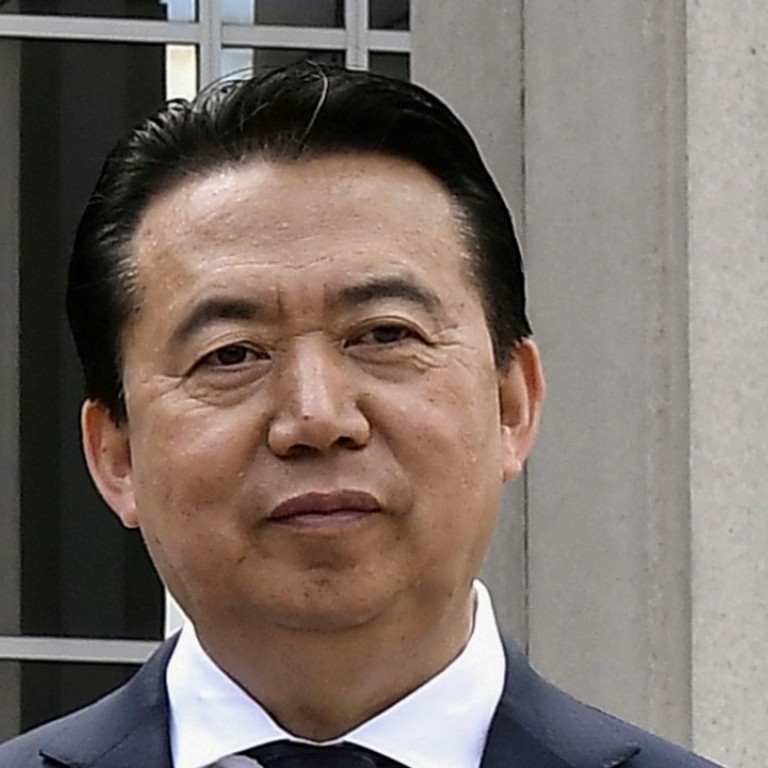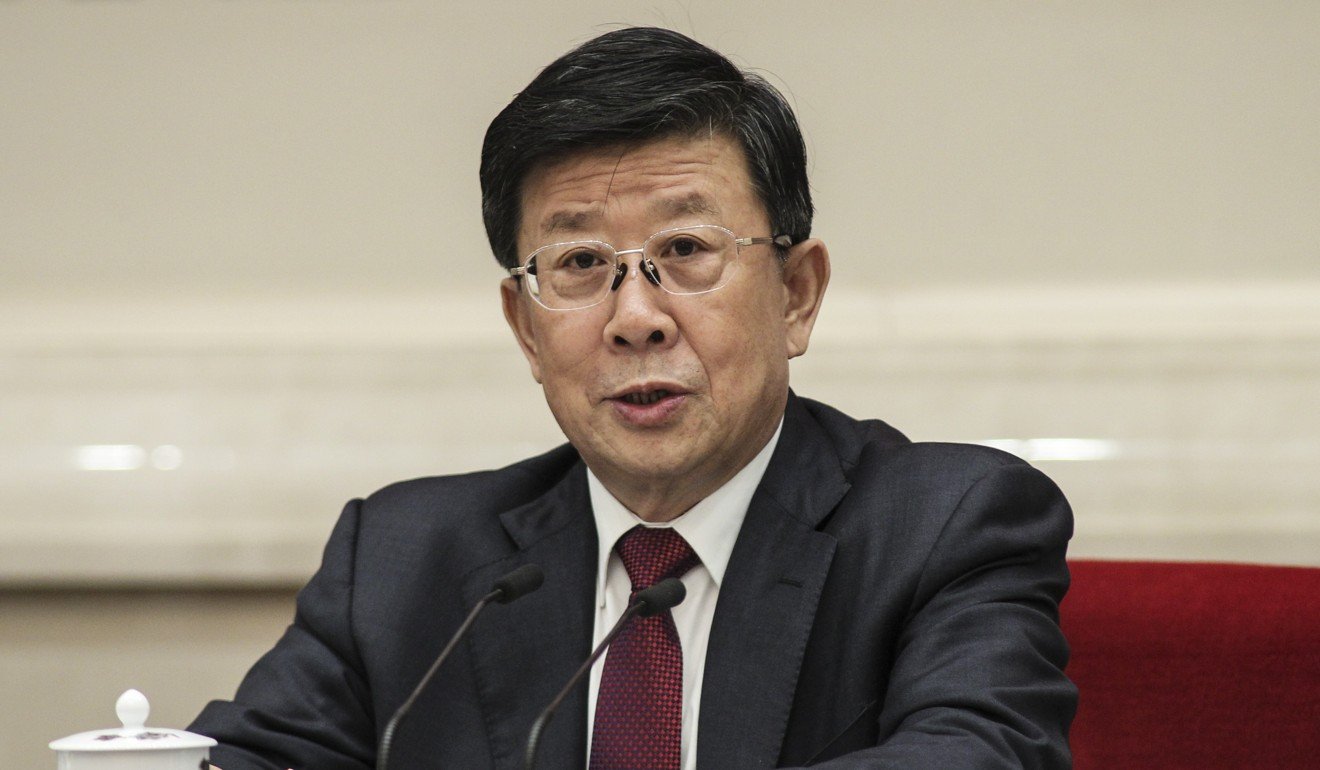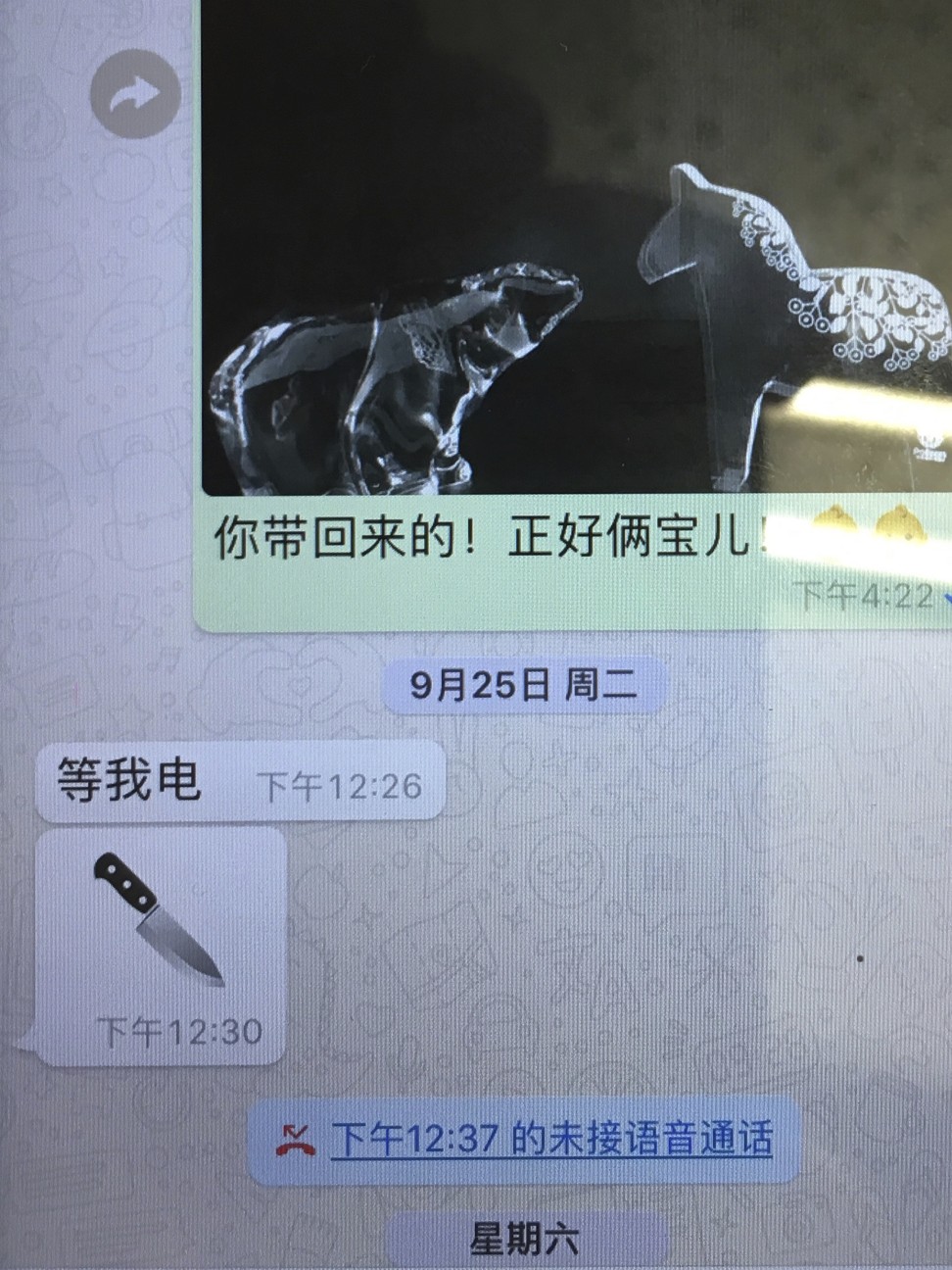
China accuses former Interpol chief Meng Hongwei of taking bribes
Ministry of Public Security announces task force will target associates and adds that Meng’s ‘insistence on doing things his own way means he only has himself to blame’
China has accused the former Interpol president and its vice-minister of public security Meng Hongwei of taking bribes and detained him for investigation.
A statement on the Ministry of Public Security’s website on Monday also said police would form a task force to go after Meng’s associates, adding that his “insistence on doing things in his own way means he has only himself to blame for being placed under investigation”.
Meng’s case is now in the hands of the country’s new and powerful super-anticorruption agency, the National Supervisory Commission (NSC).
The Chinese foreign ministry rejected the suggestion that China’s image abroad would be harmed by Beijing’s handling of the probe of Meng.
Analysts said Beijing would have been well aware of the risks before deciding to act, but the fact the detention went ahead regardless gives an indication of the high stakes involved.
The acting president of Interpol, Kim Jong Yang, told Associated Press on Monday that it had not been told about the investigation of its chief.
“I find it regrettable that the top leader of the organisation had to go out this way and that we weren’t specifically notified of what was happening in advance,” Kim said in a phone interview.
“We still don’t have sufficient information about what’s happening [with Meng] or whether it has anything to do with Chinese domestic politics.”
Shortly after the NSC announced its investigation, China’s Minister of Public Security Zhao Kezhi convened a midnight Communist Party committee at the ministry, which expressed “unanimous support” for the probe against Meng and pledged “absolute political loyalty” to President Xi Jinping and the party leadership, according to the statement.
The NSC announced just before midnight that Meng had been detained while an unspecified law violation was being investigated.
Interpol also received Meng’s resignation as the international body’s president soon afterwards.
Meng was one of the six deputy ministers in the security ministry, a post he took up since 2004.
The Ministry of Public Security’s statement said Meng’s suspected corruption and violation of laws had “gravely jeopardised” the party and the police, adding that it would form a task force to investigate anyone else suspected of taking bribes with Meng.
The ministry leaders reiterated they would strictly enforce Communist Party discipline and steadfastly obey and carry out the party’s decisions and plans.
“There is no place for any negotiation or bargaining with the party,” the statement read.
During a regular press conference on Monday, Chinese foreign ministry spokesman Lu Kang did not say directly whether the alleged crimes had been committed during Meng’s Interpol presidency.
“The investigation is still under way and further details may be revealed as the probe proceeds,” Lu said, adding that it demonstrated Beijing’s commitment to fighting corruption.
China confirms detention of former Interpol chief Meng Hongwei
Beijing-based political commentator Zhang Lifan said the glaring omission in the NSC’s announcement about the probe of Meng, in which it did not refer to its usual phrase of suspected Communist Party discipline violation, could have been mindful of international perception and criticism about whether party rules prevail over the country’s law.
“I’m pretty sure they would have expected an extraordinary response from the international community before taking such a decision [to detain Meng],” Zhang said.
“I guess something urgent must have happened. That’s why [the authorities] chose to take such immediate action, at the risk of losing face on the international stage.
“If what Meng is involved in is nothing more than an ordinary corruption case, there would have been no need for the authorities to handle it in such a manner. Maybe there is another important consideration not yet disclosed.”

Zhu Lijia, a public administration expert with the Central Party School, said the authority’s criticism of Meng’s “willfulness” suggested the public security ministry veteran “may not have strictly toed the party lines”, a major disciplinary requirement emphasised by the Communist Party.
Steve Tsang, director of the SOAS China Institute in London, said that given Meng’s seniority, any decision to detain him must have come from the highest levels of the Chinese government.
“Chinese foreign policy is required first and foremost to serve the interests of the Communist Party,” he said.
“Thus, while the image of China and advancing China’s capacity to take on leading offices in international organisations matter to the Chinese government, they are secondary to party considerations.”
Missing head of Interpol ‘under investigation’ in China
“This will be deeply embarrassing to China and it may well have to pay a price for its nominee for the presidency of Interpol to be detained for undefined crimes in China, [but] this is of secondary consideration to the party leader if he has a reason to want to take Meng down … It is likely that his problems would have been considered serious.”
Meng, 64, was reported missing last week by his wife in Lyon, France, where Interpol is based.
Grace Meng said she had not heard from her husband since September 25, according to a statement from the French interior ministry.
She spoke to news media in Lyon just before Beijing issued its statement on Sunday, pleading with national governments to intervene, saying she feared that her husband’s life was in danger, Agence France-Presse reported.
She said the last social media message she received from her husband came on September 25, saying “wait for my call”, followed by a knife emoji minutes later.

“This matter belongs to the international community,” Meng told a press conference. “I’m not sure what has happened to him.”
She and the couple's children have been placed under protective custody after receiving threats, the French interior ministry said on Saturday.
Additional reporting by Kinling Lo


